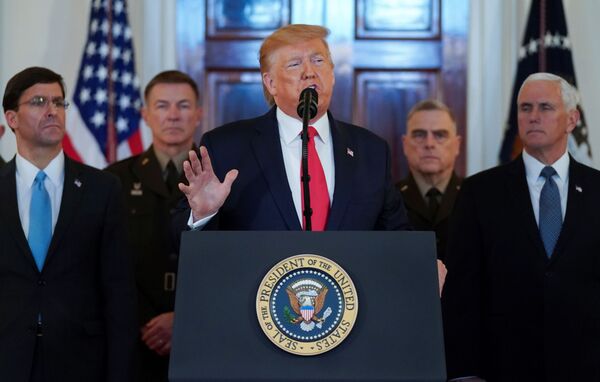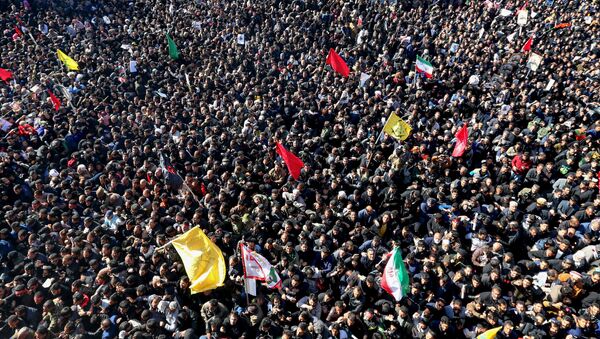However, following the attack, US President Trump backtracked on his militaristic rhetoric towards Iran. Associate Professor at the Department of Political Science at the University of Chicago Paul Poast has explained what might be behind this change of heart.
Sputnik: Following the deterioration of relations with Iran and overtly militaristic rhetoric, President Trump emphasised the unwillingness of his administration to engage in a military conflict. What do you think is the reason for this swift change in policy towards Iran?
Paul Poast: It is quite common for governments to insist that they are merely being “defensive” in their use of military force. Indeed, Trump has on a number of occasions said that he wants to be friends with Iran, but is willing to use military power if necessary.
Sputnik: Despite a clear reluctance to escalate the conflict, the president made a clear emphasis on US military power. What is the reason for that? Do you think a possible escalation of the conflict is still on the table?
Paul Poast: I do not think escalation will occur. I think Trump is following the same playbook as with North Korea: use economic pressure and threat of war to make it look like he is not bargaining from a position of weakness.
Sputnik: The president said that he would also ask NATO “to become much more involved in the Middle East process”. What reaction could the public expect from NATO? Can we talk about a possible expansion of NATO’s contingent in the region?
Paul Poast: I don’t see NATO becoming involved. While NATO has engaged in “out of area” operations the past couple decades, the circumstances were very different (i.e. help in Afghanistan following direct attack on US soil).
Sputnik: Trump also said that the US no longer needs oil from the Middle East. In December, it was announced that the US would secure the oil in Syria. Do these two statements contradict each other?
Paul Poast: The US does not need oil from the Persian Gulf region, but the flow of oil from that region influences world oil prices. Those prices, in turn, influence the global economy, which then influences the US economy. The US has had a decades long policy of ensuring the flow of oil out of the Gulf for the purpose of stabilising world oil prices.

Sputnik: During the conference, Trump highlighted the importance of the prevention of the development of nuclear weapons by Iran. Why does Trump focus the public’s attention on this particular issue? Is there really a nuclear threat from Iran?
Paul Poast: The US has long viewed Iran as a threat to the region. Part of this is a perception that it’s government [is] ideologically driven to “spread the revolution”. For me, a bigger part is that two long standing US allies in the region, Israel and Saudi Arabia, oppose Iranian influence in the region. The US decision to side with them has long been a source of its opposition to Iran.
This is linked to Iran’s nuclear programme. The concern is not that Iran would use a nuclear weapon, but that a nuclear armed Iran could “blackmail” other states in the region.
Trump also called on the remaining members of the JCPOA – Russia, China, Britain, and France – to “break away from the remnants” of the agreement and proposed joint cooperation on a new deal with Iran. What do you think the likelihood is for a revival of a JCPOA analogue? What form could it take?
Paul Poast: The question is how to stop Iran from having a nuclear weapon. The JCPOA was viewed as an alternative to economic pressure and military force. It couldn’t be done unilaterally, as multiple parties (such as Russia) could support Iran in its efforts to acquire a nuclear weapon.




